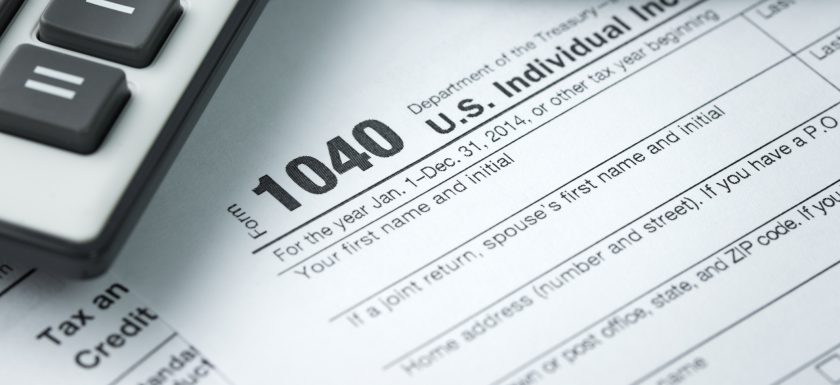
Tax and Accounting Services
About DuPage Tax Solutions
DuPage Tax Solutions is located in Naperville, IL. Our clients are mostly residents and small businesses within the Chicago metropolitan area – DuPage, Cook, Will, and Lake counties. Our remote work capabilities allowed us to extend our services nationwide. Today, we pride ourselves in having clients from all 50 states. Our virtual services are fast, easy, and convenient. Clients submit and review documents electronically through our secured online portal.
Income Tax Laws: Federal vs. State

Navigating the complexities of income tax is essential for effective financial planning and compliance. In the United States, taxpayers face both federal and state income taxes, each with unique rules and implications. These tax systems interact in ways that impact taxable income, deductions, credits, and filing requirements. This article provides a comprehensive overview of the key differences between federal and state income taxes and highlights potential benefits for cross-state workers.
Home » Income Tax Laws: Federal vs. State
Federal Income Tax Overview
The Internal Revenue Service administers the federal income tax, which applies uniformly across all states. Additionally, the revenue collected funds various federal programs, including national defense, social security, and infrastructure development.
Here are a couple of factors to keep in mind:
Progressive Tax Rates
The federal tax system uses marginal tax brackets, where higher income is taxed at higher rates. Specifically, for 2024, the tax brackets range from 10% to 37%.
Standard Deductions and Credits
Taxpayers can reduce their taxable income through standard deductions and may qualify for credits like the Earned Income Tax Credit (EITC). Each credit has its own eligibility requirements.
Uniform Filing Deadlines
Generally, federal tax returns are due on April 15th each year. However, the due date can change if you file an extension or the IRS announces extensions.
State Income Tax Overview
State income taxes are imposed by individual states, and their structures can vary significantly. These taxes primarily fund state-specific services such as education, transportation, and public safety. Consider the following items:
Tax Rates
While some states mirror the federal progressive system, others implement flat tax rates, and a few have no state income tax at all. For example, California has a progressive system with rates up to 13.3%, while states like Florida impose no state income tax.
Deductions and Credits
State-specific deductions and credits may differ from federal provisions, affecting taxable income and overall tax liability.
Taxable Income
Some states differ from the IRS in the types of income they tax. For instance, certain states exempt pensions and Social Security benefits, even though the IRS does not.
Filing Requirements
Generally, these are the key filing scenarios that can trigger filing obligations:
- Nonresident Filers: If you earn income in a state where you are not a resident, you may still need to file a nonresident tax return. For example, remote workers might trigger filing requirements in states where their employer is based.
- State Filing Thresholds: Some states set their own income thresholds for filing, which can depend on factors such as filing status. These thresholds are often different from federal rules, so it’s important to verify the specific requirements in each state.
- Moving Between States: If you moved to another state during the tax year, you might need to file part-year returns in both your former and current states. Each state will require you to report the income earned within its borders.

Tax Benefits for Cross-State Workers
Taxpayers who live in one state but work in another may qualify for tax benefits that can help reduce their overall tax burden.
Reciprocity Agreements
Reciprocity agreements are agreements between states that allow residents to pay income tax only in their state of residence, rather than the state where they work. For instance, if you live in Wisconsin but work in Illinois, a reciprocity agreement ensures you only pay taxes in your home state. This simplifies tax filings and avoids unnecessary financial strain.
Credit For Taxes Paid to Another State
If you earned income that was taxed by two states, you may be able to claim a credit for the taxes you paid to the nonresident state on your resident return. These credits ensure that income taxed by the work state is accounted for in the home state’s tax calculations.
Navigating the Complexities of Income Tax
Understanding the differences between federal and state income taxes is critical for accurate filings and financial planning. From variations in tax rates to specific filing requirements and cross-state benefits, these systems present unique challenges and opportunities. Staying informed about these distinctions and their interactions ensures compliance and helps optimize your tax outcomes. For personalized guidance, consult with DuPage Tax Solutions.
You May Also Like These


What You Need to Know About 529 Plans

Benefits of Hiring a Tax Professional

Tax Strategies for Individuals
Ready to Take Control of Your Finances?
Contact us today for personalized tax, accounting, and advisory services tailored to your needs. Let’s work together to achieve your financial goals!

Contact Info
Ph. (630) 909 9700
Email: DPTax@DP-Tax.com
Mail address:
1552 Illinois Rte 59 #1037
Naperville, IL 60564
Business Hours
Mon: 11 am – 7 pm
Tue: 11 am – 7 pm
Wed: 11 am – 7 pm
Thu: 11 am – 7 pm
Fri: 11 am – 7 pm
Sat: 12 pm – 5 pm
Sun: CLOSED
Helpful Links
© 2024 DuPage Tax Solutions | Site Map | Privacy Policy | Disclaimer
